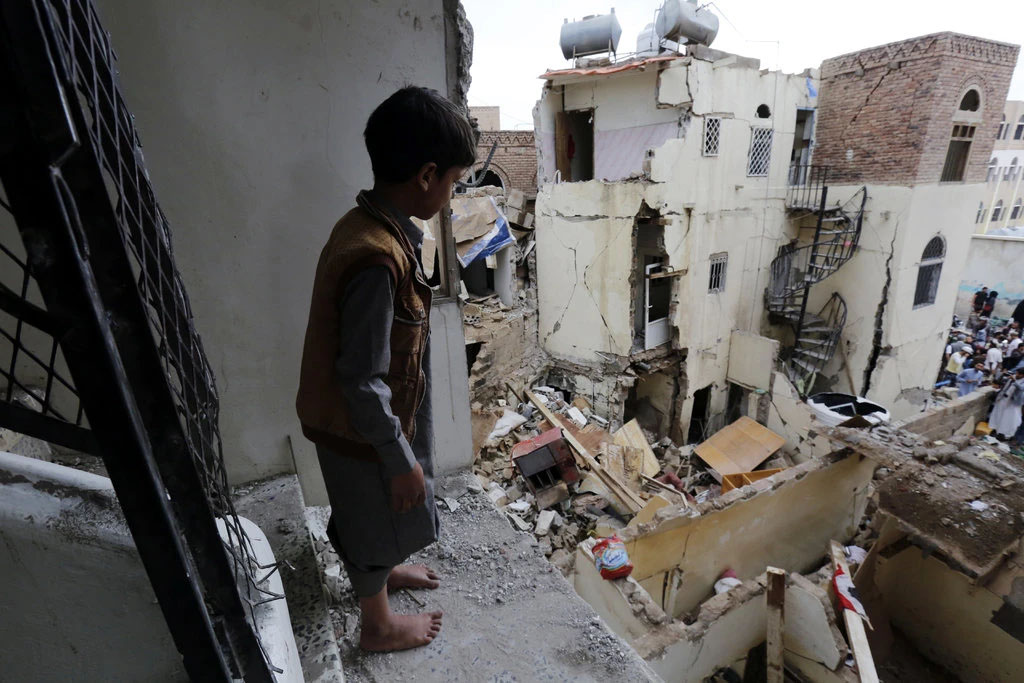The UN has so far gathered $1.2 billion during the conference.
Qatar has renewed calls for “unity, independence and territorial integrity” in Yemen on Monday amid calls by the United Nations for much-needed humanitarian aid to the war-laden country.
The comments were made during a speech delivered by Qatar’s Secretary-General of the Ministry of Foreign Affairs Dr. Ahmad Al Hammadi at a pledging conference over Yemen’s crisis, held in Geneva.
According to Qatar’s foreign ministry, Al Hammadi called on the international community to “redouble its efforts” to support and rebuild Yemen’s basic infrastructure while continuing to deliver aid.
“[Al Hammadi] affirmed that the State of Qatar has not and will not falter in its humanitarian duties and responsibility in providing numerous types of support and assistance, to alleviate the repercussions of the humanitarian crisis on the brotherly Yemeni people,” the foreign ministry statement read.
During the funding conference, the UN called for $4.3 billion in humanitarian aid for Yemen amid growing needs for support in the country of millions. However, the organisation has so far only managed to gather $1.2 billion, with the target unlikely to be met by the end of the week.
“Without sustained support for the aid operation in Yemen, the lives of millions of Yemenis will hang in the balance, and efforts to end the conflict once and for all will become even more challenging,” the UN said in a statement.
At the event, the United States announced more than $444 million of aid, saying it remains committed “to alleviating the suffering of millions from the world’s worst humanitarian crisis in Yemen.”
“More than eight years of conflict have pushed Yemen’s economy and institutions to the brink. Families have been left unable to buy basic goods, provide for their children, or access healthcare,” US Secretary of State Antony Blinken said.
Yemen has been mired in conflict for eight years since Houthi rebels forced out the internationally-backed government and captured the capital city of Sanaa.
Following the takeover of Sanaa, Saudi Arabia and the United Arab Emirates launched a military coalition that sparked the subsequent years of fighting which led to thousands of deaths.
The eight-year war has killed hundreds of thousands of people while displacing at least 4.3 million others, turning Yemen into the world’s worst humanitarian crisis.
During a two-month UN-brokered ceasefire in April last year, former President Abedrabbo Mansour Hadi handed over power to a presidential leadership council led by Rashad Al-Alimi
The truce, the first since 2016, was then extended for six months before expiring in October last year. While the period of calm saw a significant drop in civilian casualties, several breaches were recorded on both sides of the conflict.
The UN previously said the ceasefire led to a 60% decrease in civilian casualties and almost 50% drop in displacements across the war-torn country.
The halt in violence also allowed flights and fuel shipments to return to the conflict-ridden country following restrictions on the flow of oil and essential goods. The limited movement of shipments came after Saudi Arabia imposed an air and sea blockade in 2015.
Shortly after the ceasefire expired, Houthi rebels attacked the Dhaba oil port in southern Yemen, a move that Qatar’s foreign ministry slammed as “an act of sabotage that violates all international norms and laws.”
Numerous attacks have taken place since the end of the ceasefire as the UN continues its efforts to bring an end to the violence.







